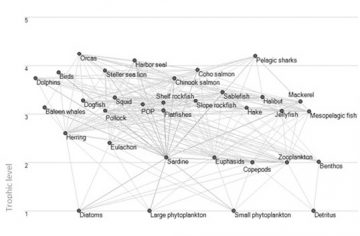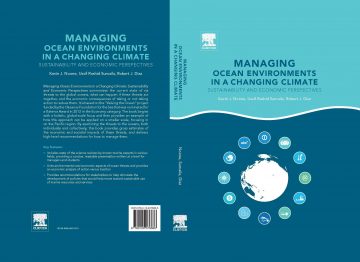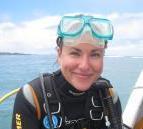Fishes are worth more than the sticker price: Sardines in British Columbia
Forage fish (sardines, squids, and other fast-growing species) are the backbone of pelagic marine ecosystem, but you wouldn’t know it from looking at their price in the store.
Noone, K.J., Sumaila, U.R. and Diaz, R.J. (Eds.) (2013) Managing Ocean Environments in a Changing Climate. Burlington, MA: Elsevier. 359 pp. ISBN 978-0-12-407668-6
“What distinguishes this book most from previous works is that [it] begins with a holistic, global-scale focus for the first several chapters and then provides an example of how this approach can be applied on a regional scale, for the Pacific region.”
Pew: Tuna fisheries and subsidies in the Western Central Pacific Ocean
Fishing for tuna in the western and central Pacific Ocean is an extremely valuable enterprise, worth an estimated $4.1 billion in 2009. But not all countries that participate benefit equally. Governments often provide subsidies to fishing fleets to offset the cost of fuel or other production expenses, thus lowering the cost of fishing and boosting […]
Sumaila, U.R., Dyck, A. and Baske, A. (In Press) Subsidies to tuna fisheries in the Western Central Pacific Ocean. Marine Policy. DOI 10.1016/j.marpol.2013.06.012
Abstract: Tuna fisheries in the Western and Central Pacific Ocean are among the most valuable resources in the region. These fisheries, worth an estimated $4.1 billion each year, play a pivotal role in supporting incomes and development goals in the region. However, due to the twin, and potentially inter-related effects of harmful fishing practices such […]
Islands Business: Close reserve to commercial fishing, scientists tell Kiribati
A decade ago, Gregory Stone and a group of coral reef ecologists suggested to Kiribati’s leadership that the long-ignored Phoenix Islands were a treasure that could bring the country prestige and tourism as a world-class marine protected area. But President Anote Tong said closing it to commercial tuna fishing would cost Kiribati millions of dollars […]
FERU hosts the Too Big to Ignore workshop "Fishing Futures"
The workshop brought together partners, independent researchers, consultants, students and fishers from North America to discuss current issues facing small-scale fisheries, mainly in North America, in order to find possible solutions.
The smaller the bigger?
Small-Scale Fisheries (SSF) have been marginalized all over the world and regulations regarding fisheries are often focussed primarily on large industrial fishing fleets. However, SSF support up to 22 million fishers, who make up about 44% of all fishers in the primary production sector (Teh and Sumaila 2011).



